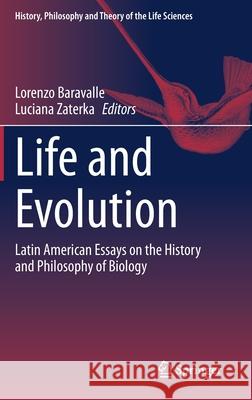Life and Evolution: Latin American Essays on the History and Philosophy of Biology » książka
topmenu
Life and Evolution: Latin American Essays on the History and Philosophy of Biology
ISBN-13: 9783030395889 / Angielski / Twarda / 2020 / 237 str.
Life and Evolution: Latin American Essays on the History and Philosophy of Biology
ISBN-13: 9783030395889 / Angielski / Twarda / 2020 / 237 str.
cena 401,58
(netto: 382,46 VAT: 5%)
Najniższa cena z 30 dni: 385,52
(netto: 382,46 VAT: 5%)
Najniższa cena z 30 dni: 385,52
Termin realizacji zamówienia:
ok. 22 dni roboczych
Dostawa w 2026 r.
ok. 22 dni roboczych
Dostawa w 2026 r.
Darmowa dostawa!
Kategorie BISAC:
Wydawca:
Springer
Seria wydawnicza:
Język:
Angielski
ISBN-13:
9783030395889
Rok wydania:
2020
Wydanie:
2020
Numer serii:
000430567
Ilość stron:
237
Waga:
0.54 kg
Wymiary:
23.39 x 15.6 x 1.6
Oprawa:
Twarda
Wolumenów:
01
Dodatkowe informacje:
Wydanie ilustrowane











